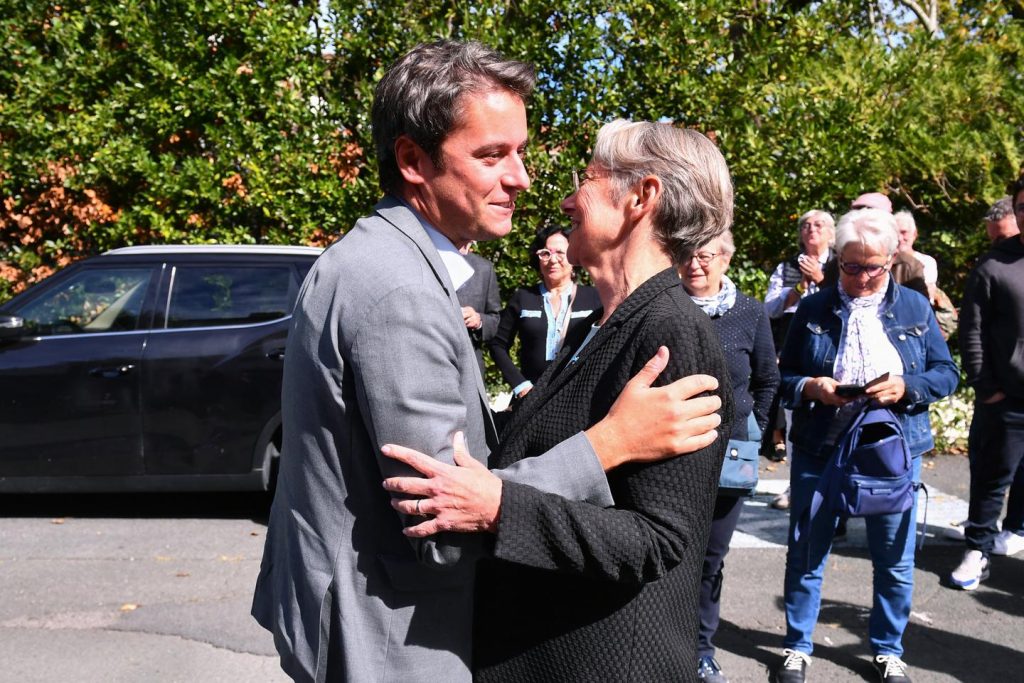Gabriel Attal announced his candidacy for the position of general secretary of Renaissance, Emmanuel Macron’s party, in a letter to members on October 29th. He expressed his ambition to rebuild the party with a focus on ideas, grassroots activism, and electoral victories. A few hours earlier, Elisabeth Borne withdrew her candidacy for the same position and instead opted for a “unity candidacy” with Gabriel Attal. The congress to elect the new party leader is scheduled for November 23rd and 24th with the election taking place on December 7th.
Both Attal and Borne emphasized the need for unity and collaboration within the party. They stated that in the current crucial period for the country and the political party, it was important to avoid division and work towards complementarity. The decision to join forces was driven by a commitment to the broader interests of the party and the country. If elected, Gabriel Attal will become the secretary-general of Renaissance, while Elisabeth Borne will serve as the president of the party’s national council, akin to a parliament of the party.
The rivalry between Attal and Borne had been brewing since the summer, with Borne citing concerns about the role of the party leader also holding the position of president of the parliamentary group in the National Assembly, a position currently held by Attal. Both candidates highlighted the importance of unity and bringing together a diverse range of views within the party. Borne reiterated the need for unity in an interview on LCP, emphasizing that division was not an option and that solidarity was key to meeting the expectations of party members.
Emmanuel Macron, the founder of En Marche in 2016 which later became La République en Marche, is the honorary president of Renaissance, the party that adopted a new name in 2022. Stéphane Séjourné was appointed as the sole candidate for the position of general secretary in 2022 and subsequently became the party’s leader. The competition between Attal and Borne has been seen as a test of leadership within the party, with Macron watching closely as the situation unfolds.
The decision of Attal and Borne to form a unity candidacy reflects a broader effort within Renaissance to foster collaboration and inclusivity. By putting aside their differences and coming together for the greater good of the party, they are sending a message of strength and solidarity to party members. The upcoming election for the party’s leadership will be closely watched as an indication of the direction that Renaissance will take in the future. Whether Gabriel Attal or Elisabeth Borne emerges victorious, the focus on unity and common purpose will be central to the party’s success going forward.















